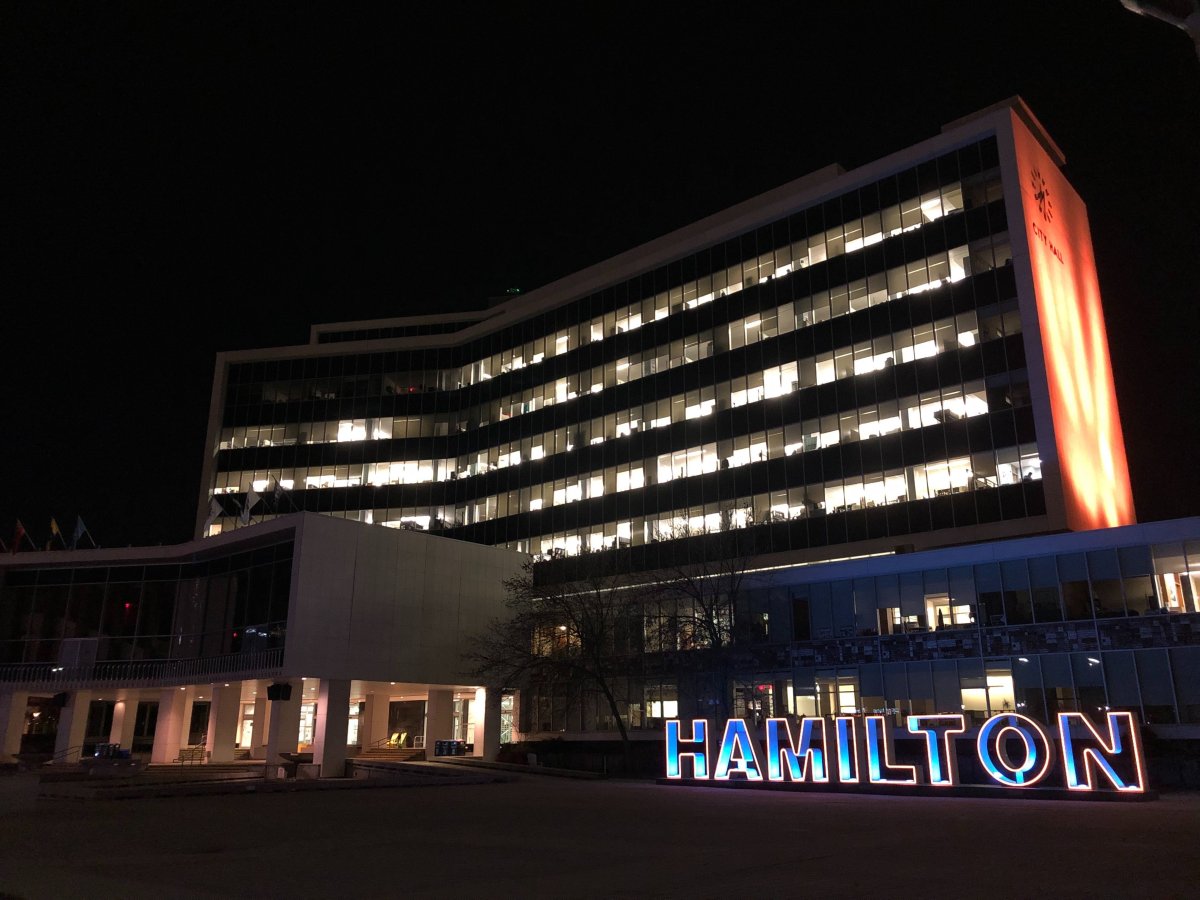At the beginning of 2020 operating budget deliberations, Hamilton, Ont. residents are looking at a potential average tax increase of 3.5 per cent for the average household.

That equates to about a $145 increase for the average home valued at an estimated $358,000.
It’s a much less alarming number than the 5.5 per cent tax hike that was put forward by general manager of finance Mike Zegarac in October. It is, however, a higher increase than previous years, due to some provincial costs being shifted onto the municipality.
Speaking in front of Hamilton’s general issues committee on Friday, Zegarac said it comes without resorting to serious cuts to services.
If the city were to implement a lower tax increase of 2.6 per cent, it would require finding $8.5 million in cost efficiencies, he said.
“I would suggest to go beyond what is before you will impact service levels, and we would have to come back with some options that will ultimately impact service levels, or services that we provide to our residents,” said Zegarac.
Some options for further reducing the tax hike include increasing or introducing new user fees for various services, reducing service hours for facilities or programs, closing under-utilized facilities, or aligning service levels to other municipalities that provide lower quality services for residents.
Mayor Fred Eisenberger said he was pleased to see the 3.5 per cent increase didn’t involve service cuts.
“I’m delighted to see that we’re not paring back on — yet, hopefully council will not do so — library services, or on recreational services,” said Eisenberger. “The kind of service cuts that we might need to get to a dramatically lower number.”
The tax impact will vary based on different wards across the city due to property reassessments, with those in the lower city potentially seeing increases of as much as 2 per cent, while rural wards may see no changes or reductions of as much as 0.5 per cent.
There was some concern among councillors that they could see a repeat of what happened following the approval of the 2019 budget, when the provincial government announced that it would be cutting funding to municipalities in a number of areas, including public health and child care.
The province later cancelled some of those cuts after municipalities pushed back, with Premier Doug Ford saying he heard mayors needed more “runway.”
-P_TOR1EGZ3_848x480_1528391235993.jpg?w=1040&quality=70&strip=all)
Ward 5 Councillor Chad Collins asked Zegarac whether staff have a “Plan B” in the event that the provincial government makes similar cuts after the budget process this year.
“Timing’s always been an issue for us here,” said Collins. “We pass our budget, theirs comes out soon after, there are municipal impacts, and then we’re forced to dip into reserves.”
Zegarac said staff don’t have a “crystal ball” to see if the province will make similar announcements this year.
“I would be hopeful that, the fact that they stepped back from some of those changes, recognizing that municipalities identified the need for a ‘runway’ as it relates to being able to adjust for those impacts, I would hope that that was an opportunity to learn, as it relates to our limitations.”
Zegarac said municipalities, including Hamilton, are working toward developing multi-year budgets to accommodate provincial regulations, so any sudden changes announced by the province wouldn’t be “fair.”
If there are additional pressures put onto the city, Zegarac said they would be forced to dip into discretionary reserves, which would force them to defer on capital projects like vehicle replacements or investments in facilities, and would likely have an impact overall on programming.
Collins said that essentially means it’s a “waiting game” for the city.
Deliberations on the city’s 2020 operating budget will continue for the next couple of months, with an approval date scheduled for April 1.




Comments